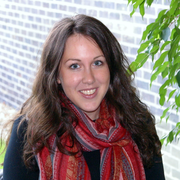Early Career Case Study: Dr Laura Carter
Tell us about your background. Where are you from and what did you do before you joined the Environment department?
I graduated from The University of York in 2009 with a BSc in Environmental Science and then stayed on to complete a PhD in the Department of Environment and Geography. I spent some time in Industry as an Environmental Risk Assessor at Unilever and then moved to Australia to take up a Postdoctoral Research Fellowship at Commonwealth Scientific Research Organisation.(CSIRO). I returned to the UK in October 2015 to start my current role.
Why did you decide to become an Early Career Researcher in the Department of Environment and Geography?
I really enjoyed my time here as an undergraduate and as a PhD student. The department is highly multidisciplinary bringing together scientists with a wealth of expertise to solve some of the world’s key environmental challenges. The research group I am part of is conducting novel, exciting research in the area of the contaminants in the environment and to be part of this is a fantastic opportunity. This position specifically allows me to continue with research in an area I am passionate about whilst gaining new skills and expertise through added responsibilities and potential for collaboration, which will allow me to develop as an effective researcher.
Tell us about your research. What do you currently work on and how are you funded?
I am currently working on a European funded project called "Intelligent Pharmaceuticals in the Environment", as a Postdoctoral Researcher. The project is part of a wider initiative, which aims to implement intelligence-led testing and risk assessment of pharmaceuticals in the environment. Specifically, my focus is centered on improving our current understanding of the sorption and bioaccumulation potential of pharmaceuticals in soil and water systems, with the ultimate aim being to develop a suite of models to accurately predict the fate and uptake of pharmaceuticals in the environment. These models will form part of a framework which can be used to assess potential environmental risks of pharmaceuticals at an early stage of the development process as well as to address environmental risks associated with legacy pharmaceuticals.
What part of your work do you like best?
Working as an Early Career Researcher means I am constantly tackling new challenges and thinking outside the box to solve problems. On any given day I could be writing papers, helping PhD students, analyzing results or in the lab carrying out analyses and the variety this type of work offers really appeals to me.
What piece of advice would you share with other Early Career researchers?
It is important to have an end goal in sight but you should be prepared to deviate from your plan to take up exciting opportunities when they arise, you never know where these will lead!

